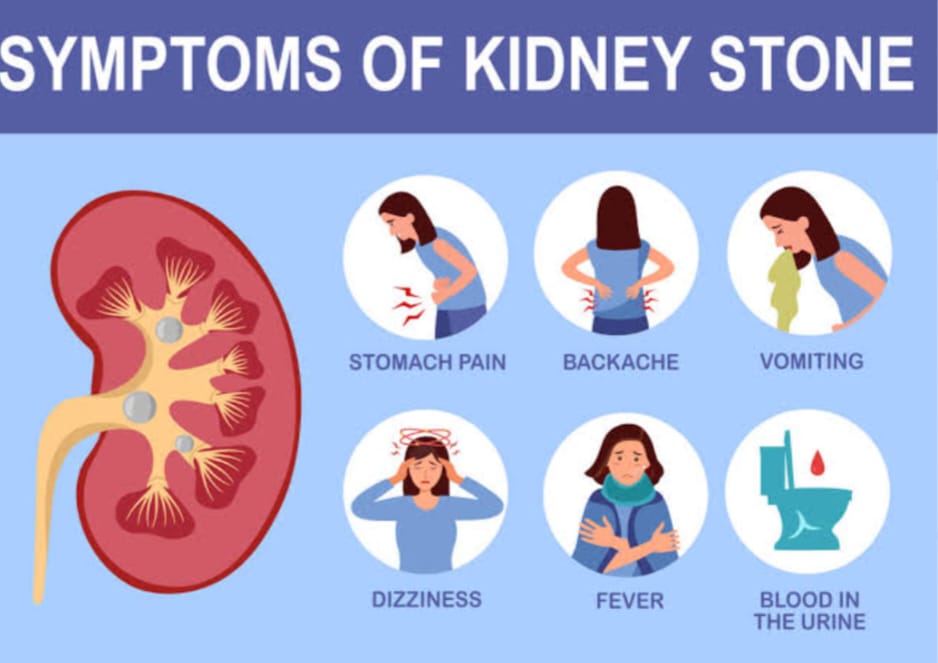Kidney stone "Nephrolithiasis"
A kidney stone is a hard mineral and crystalline material formed within the kidney or urinary tract. Kidney stones are a common cause of blood in the urine and often severe pain in the abdomen, flank, or groin. One in every 20 people develops a kidney stone at some point in their life.
The condition of having kidney stones is termed Nephrolithiasis or urolithiasis Causes kidney stones Kidney stones form when there is a decrease in urine volume or an excess of stone-forming substances in the urine. The most common type of kidney stone contains calcium in combination with either oxalate or phosphate. Other includes uric acid and the amino acid cysteine.
Obstruction to the flow of urine can also lead to stone formation. Kidney stones can also result from infection in the urinary tract. Men are especially likely to develop kidney stones, and whites are more often affected than blacks.
The prevalence of kidney stones begins to rise when men reach their 40s, and it continues to climb into their 70s. People who have already had more than one kidney stone are prone to develop more stones.
A family history of kidney stones is also a risk factor for the development of kidney stones.
Homoeopathic treatment:-
Homeopathic treatment is a clinically proven therapy that breaks the stones in to gravel and eliminates them through urine. The medicines cleanse out all urinary tracts. The various methods of treating kidney stones can be by breaking the stone so that stone material completely breaks down and is able to move out easily. The other methods include flushing out all dissolved particles and preventing microbial growth in the urinary tracts. Homeopathy also decreases recurrence of kidney stones. Homeopathic medication increases kidney resistance and resumes kidney function.
The food and drug administration (FDA) has approved homeopathic medicine,considering as very effective in Kidney Stone.


